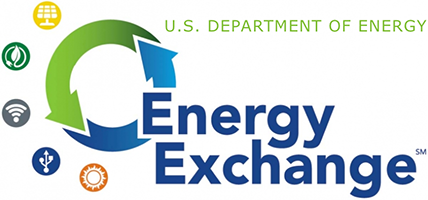Pittsburgh, PA

Focusing on critical spaces, such as labs, will enable agencies to prioritize federal energy efficiency and decarbonization goals. FEMP's Smart Labs program is an example of emerging efficient laboratory building strategies. The benefits of this program include improved safety and health, reduced energy consumption and carbon emissions, lower operating costs, reduced degradation, and increased retention and recruitment of top talent researchers and sciences. In this session, with the help of our national lab partners, Sandia National Laboratory and Lawrence Berkeley National Laboratory, you will learn about the steps to implement a Smart Labs program of your own and the methods behind the high-performance laboratory building. The partners will share best practices in implementation, practical advice for building a team, and how to address these critical facilities.
Instructors
Rachel Romero, Senior Engineer, National Renewable Energy Laboratory Read Bio
Rachel Romero, PE, is a dynamic engineer and project leader at the National Renewable Energy Laboratory (NREL). With a Bachelor's in Mechanical Engineering from Hope College and a master's from the University of Colorado Boulder, she's been a pivotal force at NREL since 2010. Rachel manages various projects in building energy technologies. Adept in high-performance buildings, she leads the Smart Labs program, offering technical expertise nationwide. An active member of ASHRAE, Rachel's passion lies in advancing the industry through education and strategic partnerships, marking her as a leader in sustainable solutions.
Deirdre Carter, P.E., Energy and Sustainability Manager, Lawrence Berkeley National Laboratory Read Bio
Deirdre Carter, P.E., is the energy and sustainability manager at Lawrence Berkeley National Laboratory (LBNL). She is responsible for tracking and reducing Berkeley's Lab electricity, natural gas, and water consumption and greenhouse gas emissions to meet U.S. Department of Energy and University of California energy and sustainability goals. Deirdre works on energy management, energy and water efficiency through ongoing commissioning, renewable energy, and laboratory airflow management. Prior to joining LBNL, she was a mechanical engineer at Taylor Engineering, where she designed energy efficient HVAC systems for high-profile buildings, including museums and crime labs. Deirdre holds an M.S. from Stanford University and a B.S.E. from Duke University, both in civil and environmental engineering. She is a licensed professional mechanical engineer in California.
Chris Quinn-Vawter, Industrial Hygienist, Sandia National Laboratory Read Bio
Christopher Quinn-Vawter is a Certified Industrial Hygienist at Sandia National Laboratories and has 10 years of experience in the EHS field. He holds a M.S. in Toxicology and a M.S. in Environmental Health from Colorado State University. For the last 7 years, he has supported a wide range of research activities and large-scale testing at Sandia National Laboratories and is currently serving as industrial hygiene lead in Sandia's Smart Labs pilot program at the New Mexico campus.
Learning Objectives
Upon completion of this course, attendees will be able to:
- Recognize the benefits of implementing a Smart Labs Program;
- Identify how to reduce energy consumption and carbon emissions;
- Choose characteristics of a core team for successful project implementation;
- Recognize how to improve efficacy of laboratory ventilation systems;
- Select options that indicate an understanding of the tools that can be utilized in the design and construction process.









